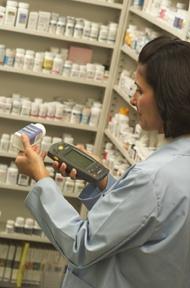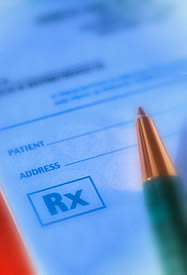|
You will do foolish things, but do them with enthusiasm. Colette |
Internet pharmacies and medicine you looking for
|
|
The Internet has changed the way we live, work and shop. The growth of the Internet has made it possible to compare prices and buy products without ever leaving home. But when it comes to buying medicine online, it is important to be very careful. Some websites sell medicine that may not be safe to use and could put your health at risk. Millions of consumers are using the Internet to get health information. And thousands of web sites are offering health information. Some of those sites are reliable and up-to-date; some are not. How can you tell the good from the bad? First, it's important to carefully consider the source of information and then to discuss the information you find with your health care professional. These questions and answers can help you determine whether the health information you find on the Internet or receive by e-mail from a Web site is likely to be reliable. You have to talk with your doctor and have a physical exam before you get any new medicine for the first time. Use only medicine that has been prescribed by your doctor or another trusted professional. The benefits of medicines are the helpful effects you get when you use them, such as lowering blood pressure, curing infection or relieving pain. The risks of medicines are the chances that something unwanted or unexpected could happen to you when you use them. Risks could be less serious things, such as an upset stomach, or more serious things, such as liver damage. Before using any medicine--as with many things that you do every day--you should think through the benefits and the risks in order to make the best choice for you. There are several types of risks from medicine use: a) The possibility of a harmful interaction between the medicine and a food, beverage, dietary supplement (including vitamins and herbals), or another medicine. Combinations of any of these products could increase the chance that there may be interactions. b) The chance that the medicine may not work as expected. c) The possibility that the medicine may cause additional problems. For example, every time you get into a car, there are risks---the possibility that unwanted or unexpected things could happen. You could have an accident, causing costly damage to your car, or injury to yourself or a loved one. But there are also benefits to riding in a car: you can travel farther and faster than walking, bring home more groceries from the store, and travel in cold or wet weather in greater comfort. To lower the risks and obtain the full benefits of medicines you need a)talk with your doctor, pharmacist, or other health care professionals; b)know your medicines--prescription and over-the-counter; c)read the label and follow directions; d)avoid interactions; e)monitor your medicines' effects--and the effects of other products that you use Important things is tell to your doctor about any allergies or sensitivities that you may have. Tell about anything that could affect your ability to take medicines, such as difficulty swallowing or remembering to take them. You have to always tell your doctor if you are or might become pregnant, or if you are nursing a baby. Always ask questions about any concerns or thoughts that you may have. Ask your doctor always if there are interactions with any other medicines or dietary supplements (including vitamins or herbal supplements), beverages, or foods. Use the same pharmacy for all of your medicine needs, whenever possible. Before starting any new medicine or dietary supplement (including vitamins or herbal supplements), ask your doctor again if there are possible interactions with what you are currently using. Reading the label every time you use a nonprescription or prescription drug and taking the time to learn about drug interactions may be critical to your health. You can reduce the risk of potentially harmful drug interactions and side effects with a little bit of knowledge and common sense. Early in a drug's development, companies conduct research to detect or predict potential interactions between drugs. Experts evaluate the drug-interaction studies as part of assessing a drug's safety. When a drug is taken orally, it usually travels from the stomach to the liver, where it can be metabolized-the process of breaking down and removing chemicals from the body. Enzymes are complex proteins that act as catalysts in starting or speeding up chemical reactions. They cause a specific chemical change in other substances without being changed themselves. The most important enzymes in the liver that metabolize drugs are called the cytochrome P450 family of enzymes. These enzymes break down drugs when they pass through the liver or small intestine. It used to be that the only way to test for drug interactions was in people. Now drug companies can take five test tubes with the five major pathways for metabolism and put their drugs in to see whether it's metabolized by CYP450. This allows to generate a list of possible interactions based on their findings. Over the last several years, there has been a substantial increase in the number of drug-interaction studies the FDA sees in new drug applications. If drug interactions are significant enough, they can prevent a drug from being approved by the FDA. If the agency determines that known drug interactions can be managed and that a drug's benefits outweigh the risks for the intended population, a drug will be approved. Drug-interaction information then goes into the drug's labeling in the sections on "clinical pharmacology," "precautions," "warnings," "contraindications," and "dosage and administration." In addition to having a good grasp of drugs and their effects, doctors take medication histories, and they consult with other members of their team to guide them in making decisions about drug interactions. They also use concise drug summaries and resources on pharmacological principles. Health professionals also use computer systems with drug-interaction screening software, electronic prescribing, and other technology. Mark Langdorf, M.D., chair of the department of emergency medicine at the University of California, Irvine, says, "In a busy emergency room, you have to quickly find out what a patient is taking and how those drugs could interact with other treatments." So rather than asking patients what medications they take, doctors should make the questions specific: "Are you taking any over-the-counter medication? Are you taking any herbal treatments or vitamins?" But it is good way -- consumers remind doctors of everything they take when they are prescribed a new medication. So a patient might say: "Now remember, I'm also taking birth control pills. Is there a risk of interaction with this new medicine?" Drug interactions with food and beverages, for example, taking quinolone antibiotics such as ciprofloxacin with food and drinks such as colas, coffee, and chocolate that contain caffeine may cause excitability and nervousness. There can be a potentially fatal increase in blood pressure if food containing tyramine is eaten when taking monoamine oxidase inhibitors, drugs that treat mood disorders.
Directory with links to popular consumer products and services.
|

